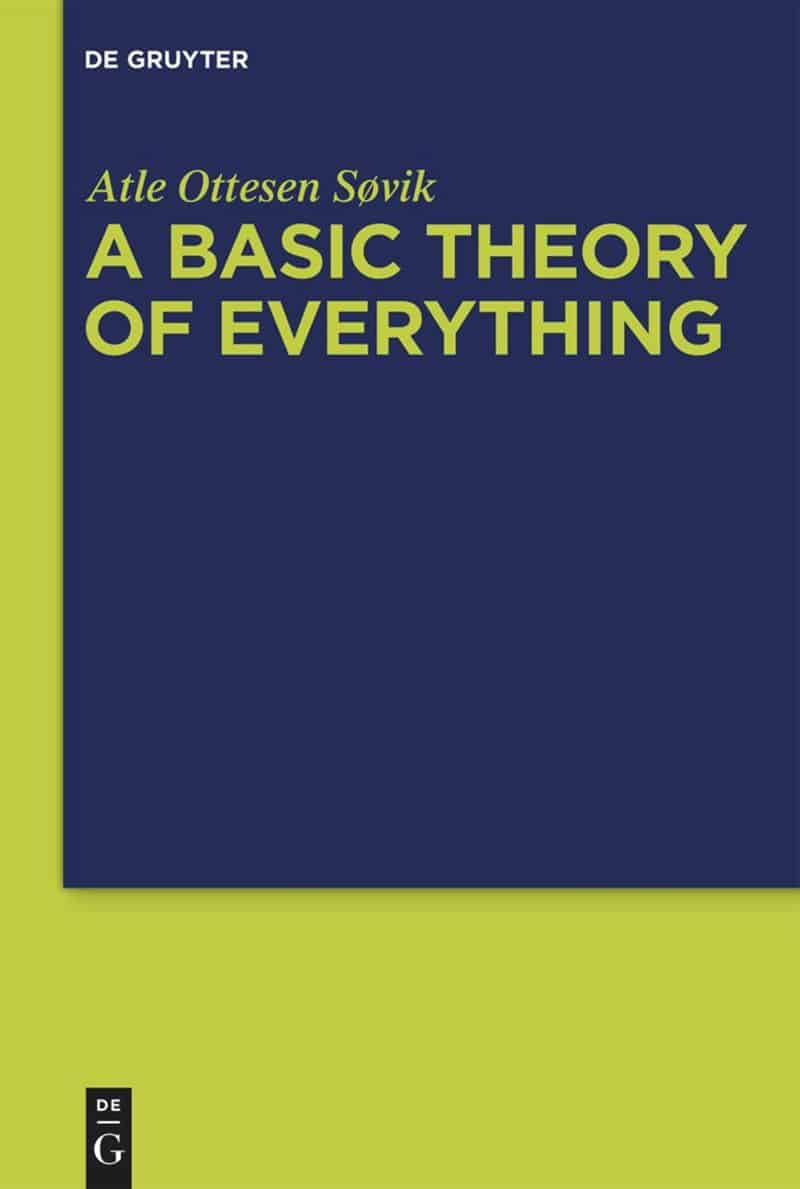De Gruyter’s 10th Open Access Book Anniversary: Atle Ottesen Søvik and His Winning Title “A Basic Theory of Everything”
To celebrate the 10th anniversary of our first open access book publication, we held a contest of which 10 deserving winners emerged. Each of them will introduce themselves by answering three questions – and today's turn is theologist Atle Ottesen Søvik's!
A little over a year ago, we started a call for book proposals to celebrate the 10th anniversary of our very first Open Access book publication. We received submissions from more than 120 authors, 10 of whom would get their title published in Open Access at no cost.
One by one, we are now presenting the winners and their titles through short interviews on our blog. We already heard from Dominique Haensell (“Making Black History”), Özkan Ezli (“Narrative der Migration”), Michael Navratil (“Kontrafaktik der Gegenwart”) and Lena Zschunke (“Der Engel in der Moderne”), who told us about their monographs, their envisioned audiences, and a little about themselves.
Next in line is Atle Ottesen Søvik, author of the winning title “A Basic Theory of Everything: A Fundamental Theoretical Framework for Science and Philosophy”.

De Gruyter: Please tell us a little bit about yourself!
Atle Ottesen Søvik: I am a Professor of Systematic Theology, writing and teaching on metaphysics and philosophy of mind, but now focusing on ethics and artificial intelligence. I am 44 years old, work at MF Norwegian School of Theology, Religion and Society in Oslo, Norway, where I live with my wife and three children.
DG: What is your book about?
AOS: The book presents a naturalistic theory saying that the universe and everything in it can be reduced to three fundamental entities: a field, a set of values that can be actualized at different places in the field, and an actualizer of the values. I defend the theory by using it to answer the main questions in metaphysics, such as: What is consciousness, free will, time, ethical values, etc.? The theory is compared with the main alternatives, and I argue that it is better able to solve problems than the existing theories. This is a book for people who like to ponder the big existential questions, including what existence is, why we have the laws of nature that we do, or why there is anything at all.
“Soevik’s stereotype reader is a young person studying philosophy who ‘wants to know how everything in the world works.’ Philosophy requires raising questions about boundaries, and Soevik pushes philosophy across boundaries in an effective way.”
DG: What made you want to publish your book Open Access?
AOS: I love having quick online access to books and articles. Publishing Open Access means the possibility of reaching a much broader audience than otherwise. Since I have previous good experience with De Gruyter, Open Access at De Gruyter seemed ideal for me. I hope that by publishing this book Open Access, it will reach enough readers to create some debate about the ideas it contains.
[Title by Greg Rakozy via Unsplash
